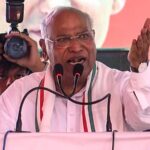Introduction
In an era where media plays a pivotal role in shaping public opinion, the responsibility of journalists and TV anchors to present accurate and unbiased information is more crucial than ever. Recently, TV anchor R. Shivshankar found himself at the center of controversy after making premature statements about an incident involving the destruction of a religious idol. Without waiting for a police investigation, Shivshankar attributed the event to political motives simply because it occurred in an opposition-ruled state. The real story, however, paints a far more human and tragic picture — the act was committed by a man named Krishnaiah Goud, who was searching for food in his desperation.
The Incident: A Desperate Search for Food
The controversy started when news broke of an idol being damaged in an opposition-ruled state. Initial reports suggested that this was a politically motivated act of vandalism, potentially inciting religious tensions. TV anchor R. Shivshankar jumped to conclusions and, without concrete evidence or an official investigation, declared the incident as politically charged.
However, as the police investigated the incident, it became clear that the reality was far more grounded in human suffering. The person responsible for the damage, Krishnaiah Goud, was not a political activist or criminal. He was a hungry man searching for food, and in his desperation, he accidentally damaged the idol. This revelation starkly contrasts with the sensationalized narrative that Shivshankar initially promoted.
Media’s Role in Spreading Unverified Information
The case of R. Shivshankar’s premature conclusions highlights a growing problem in media: the tendency to rush to judgment, especially when political narratives can be pushed. Media outlets have immense power to influence public opinion, and when anchors or reporters jump the gun, the consequences can be severe. In this case, Shivshankar’s hasty comments could have fueled religious or political tensions that were not present in the actual incident.
Rushing to conclusions without waiting for verified facts undermines the credibility of the media and erodes public trust. This incident serves as a stark reminder that journalists and anchors must adhere to the highest standards of journalistic integrity, ensuring that all reports are grounded in fact.
The Consequences of Sensationalism
Sensationalizing news not only creates panic but also distorts the truth, often leading to misunderstandings or conflict. In this case, the idol destruction could have easily been manipulated to deepen the political divide, further stoking religious or communal tensions. Unfortunately, this isn’t an isolated incident. Across the media landscape, similar cases have surfaced where facts are twisted, or events are misrepresented for political gain or higher ratings.
Such practices are dangerous because they capitalize on the emotions of viewers, who may not have the time or resources to verify information themselves. For a democratic society, a reliable media is essential in fostering informed debate and holding those in power accountable. Sensationalism, in contrast, undermines these principles.
The Importance of Responsible Journalism
The incident with Krishnaiah Goud reminds us of the importance of responsible journalism — especially in cases involving sensitive subjects like religion and politics. Journalists and media personalities must act as gatekeepers of information, ensuring that they do not let bias, speculation, or ratings interfere with the truth.
To maintain credibility, news anchors should avoid jumping to conclusions based on limited information, and instead, wait for official investigations to conclude. More importantly, when mistakes are made, it’s essential for media personalities to take accountability and issue corrections publicly.










